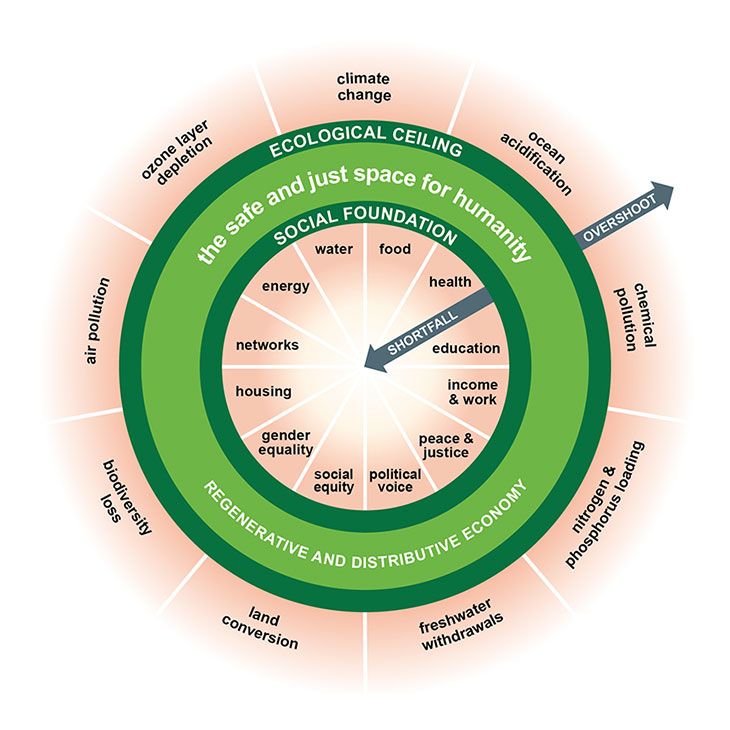We conduct materiality assessments regularly as a follow-up on the sustainable development presentations for shore-based and seagoing employees. Our stakeholder consultation programme for seagoing employees covers office visits, officers and crews' fora and training programmes during Safety Awareness Courses.
For shore-based employees materiality assessments are undertaken during induction programmes, presentations at international and Singapore-based conferences and events, peer group discussions as well as formal surveys and informal ad hoc feedback. We included sustainability-related questions into customer questionnaires as well as conducted targeted engagements using the purpose-built online platform and phone interviews to drill down into the areas of importance.
We conducted an extended stakeholder engagement exercise in 2018 / 2019 and refreshed the list of Material issues based on the feedback received from stakeholders and input by CNCo's senior leadership team during the SD Conference held in January 2020. This report has been written to address material areas as per GRI requirements. The revised Materiality Matrix is presented here and the results of key risks and opportunities by stakeholder groups here.
New approach to Materiality
In this fast-changing environment, corporate sustainability strategies must change from incremental changes in the areas that we impact (i.e. Inside-Out approach), to driving transformational change in the areas where urgent changes are needed for the world to stay ecologically safe and socially just (i.e. Outside-In approach).
Developed in close collaboration with our sustainability partner, Forum for the Future, and supported by CNCo's senior management, the 'Outside-In' approach enables our business to respond more effectively to new challenges that are impacting business performance in unexpected ways and with unprecedented speed. In this new operating environment, the role we play in securing our planetary health and human well-being, mitigating climate change, addressing declining ocean health and worsening social inequalities, including the complexities of modern slavery is now material to our resilience and agency in shaping a sustainable future for all.
This future proofing materiality assessment meant that we have changed our approach to assessing materiality to an 'Outside-In' approach. This resulted in the following changes to the Matrix:
X-axis: We recognise the critical importance of gathering insights from a diverse pool of internal and external stakeholders, on what they view as important to CNCo's success. Our stakeholders' views directly influence our interpretation of what is important to business success. In creating the X-axis, we have therefore merged Importance to stakeholders and Importance to business into: Importance to CNCo's success in 2030.
Y-axis: We reference the Doughnut Economy* framework, which establishes the dual need of keeping within planetary ecological boundaries, while continuing to lift people above social foundations. For the Y-axis we chose to use: Importance to securing an ecologically safe and socially just world.
In shortlisting material topics for our stakeholders' consideration, we considered what may be needed to secure an ecologically safe and socially just world. To do so, we used the proxy of understanding what is material to achieving the UN Sustainable Development Goals by 2030.
Considering the speed and scale at which change is happening, having a long-term view on material topics will matter more than ever. We ensured that in describing what is material today, CNCo's stakeholders are considering not just present-day risks, but also changes on the horizon that will affect the actions we need to take as a business. We distilled this into 15 material topics covering perspectives of our stakeholders and referencing leading work from our shipping peers.
We believe that this approach helps us better address the issues that are critical to the sustainability of our Company and the world.
*Amsterdam to embrace 'doughnut' model to mend post-coronavirus economy
The Guardian, UK
*Doughnut (economic model)
Wikipedia
*The Doughnut Economy framework establishes a dual imperative of keeping within planetary health boundaries and at the same time continuing to lift people above social foundations i.e. that they have access to and can enjoy life's basics. Achieving a 'doughnut world' requires an economic system - and the business models within it - that is regenerative and distributive by design.
Consolidated Materiality Matrix is presented in the Data Section.


Photo: Franceso Ungaro on Unsplash